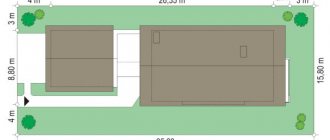The privatization procedure includes differences depending on the object that is to be transferred to private ownership. Current legislation provides for several types of property: state, municipal and private. This characteristic determines the peculiarities of the procedure.
Privatization of a room in a hostel is a legally complex procedure, which is based on the specific legal status of the hostel. The procedure is regulated by the Housing and Civil Codes of the Russian Federation, Federal Laws No. 122 of July 21, 1997, No. 189 of December 29, 2004 and No. 1541–1 of July 4, 1991, as amended in 2017.
The complexity of the procedure requires knowledge of legal norms. It will take quite a lot of time to resolve all the issues, and paperwork will follow. At certain stages, the assistance of a lawyer may be necessary.
Is it possible to privatize a dorm room?
Many citizens, due to poor financial security, are forced to live in real estate that belongs to the state or municipality. A hostel is an affordable option as it requires minimal financial outlay. Families living in them for a long time can apply for registration of ownership of the room.
The current legislation of the Russian Federation contains an open ban on the privatization of rooms in a hostel (Federal Law No. 1541–1, Article 4).
However, there are exceptions to circumvent the ban:
- ownership rights to the hostel were transferred to the municipality, and the building acquired the status of multi-apartment residential real estate;
- object of interest - the room is not a walk-through room, privatization is available only for isolated premises;
- a social rental agreement has been signed;
- the object is considered a separate property (it is not disputed or in common ownership with other residents).
Thus, the new legislation made it possible to register ownership of a dorm room. And also a legal mechanism for its implementation was developed. This allowed families to legally own residential and non-residential premises in the property in question. This requires a step-by-step registration procedure.
Transfer of hostels to municipal ownership
The problem of removing the status of dormitories or service apartments from specialized residential premises was discussed even before the Housing Code of the Russian Federation came into force. The practice of the courts of those years showed that in the absence of proper legislative regulation, there was no real opportunity to help citizens solve their housing problems through the privatization of residential premises with the status of dormitories or office premises. The only weak basis for going to court was the non-compliance of dormitories or service apartments with the requirements for specialized housing; lack of necessary furniture, access system, etc. However, the courts, for the most part, were critical of these arguments, taking into account the presence of previously established on paper status of specialized housing. And now, apparently in connection with the end of the right of citizens to privatization, the legislator took pity on the citizens, or rather on the majority of citizens who, as time has shown, live in dormitories and service apartments indefinitely. The introductory law established that the norms of the Housing Code of the Russian Federation on social rental agreement Art. Despite the fact that Article 7 of the Introductory Law refers to dormitories, this provision can also be applied to service apartments. Consequently, when transferred to municipal ownership, these residential premises lose their official status and the legal regime established for residential premises provided under social tenancy agreements is applied to them.
On the transfer of the hostel to municipal ownership. 2. Acceptance of hostels into the ownership of the city of Moscow is carried out in technically sound condition.
Social tenancy agreement
A transaction that allows citizens to obtain the use of residential premises on preferential terms is called social rent. The conditions and procedure for concluding an agreement are regulated by the Housing Code of the Russian Federation.
Such an agreement confirms that the owner has legally obtained the dorm room at his disposal. It also provides grounds for its privatization in the future.
To conclude a social rental agreement, you need to contact the city administration.
The procedure requires the provision of the following documents:
- a certificate containing data on family composition;
- documents that confirm the identity of each family member;
- a decision confirming the allocation of housing by the municipality;
- documentary evidence of the state of the personal cash account;
- an extract from the house register;
- a certificate confirming the absence of other residential property.
When the place of residence was provided by the place of work, it is necessary to additionally submit a copy of the work record book. Do not forget, if possible, to take written notice from the tenant about the provision of the room.
Important! All services provided for drawing up a social contract. hires are free and do not require financial investment from the employer.
The subject of the agreement must necessarily be separate property. Common areas and those that are accessible cannot be rented.
The following items are required:
- what type of residential property is provided (in a particular case, a room);
- size and location of the object;
- an inventory of the room and the property contained in it.
As soon as the package of documents is collected and submitted to the appropriate authority, you will need to wait. The case is considered within 30 calendar days, and this period cannot be exceeded.
Upon expiration, the employer receives a response. If it is positive, you will be given a contract. Next, you can deal with issues that relate to the privatization of the premises.
The RF Housing Code provides for the indefinite validity of such agreements (Article 60). Therefore, it does not specify an end date.
However, it can be terminated early, which is provided in connection with specific violations on the part of the employer. The reason may be other conditions (according to the Housing Code of the Russian Federation).
Personal Area
Accordingly, the norms of the Civil Code of the Russian Federation are not subject to application to the resulting legal relations. In this regard, a social tenancy agreement must be concluded with citizens living in residential premises in respect of which the legal regime has changed by force of law. How can I invalidate a commercial lease agreement and recognize through the court the right of residence under a social lease agreement, given that at the time of the conclusion of the agreement, the only basis for classifying the residential premises where I legally reside and am registered as a commercial use fund was the previously concluded commercial lease, others there were no documents. You have the right to appeal the administration’s refusal with your justification in court, on the basis of Article CAS. Article In connection with the transfer of the state farm hostel to the municipal ownership of Crimea, all residents received a notice of eviction within 30 days.
Consequently, when transferred to municipal ownership, these residential premises lose their official status and are applied to them.
Requirements for residential premises for privatization according to the law
As soon as a citizen receives a social tenancy agreement, he has the legal right to begin the procedure for privatizing a room in a hostel. Housing legislation establishes requirements that allow the process of registering property rights to be carried out.
In addition to the exceptions already listed above in Federal Law No. 1541–1 Art. 4, the following conditions must be met:
- the building was on the balance sheet of the city housing stock or organization;
- the dormitory must be residential and used exclusively for living;
- The privatized premises have residential status.
It should be taken into account that not all premises can be transferred to private ownership. The reason may be the requirements specified in legal acts (Federal Law No. 1541–4, Article 4).
If one of the prescribed conditions is not met, the applicant will be refused. A citizen has the right to appeal it in court. However, there is a chance of success only if there is an unreasonable refusal.
Press Center
Fifth: In this or another bill, grant the right to privatize residential premises in dormitories of Russian Railways, Rosatom, Russian Technologies and Roscosmos to citizens who were moved in before the ownership rights of the listed organizations arose, as well as those who have acquired by law the right to the impossibility of eviction without the provision of other housing.
Video
For the purposes of this article, a communal apartment is understood as an apartment that provides direct access to common areas in an apartment building, consisting of several residential premises (rooms), in which two or more users and (or) owners who are not members of the same family live, on the basis of separate social tenancy agreements, rental agreements or on the basis of ownership of individual residential premises in an apartment (room).
For example, in Mogilev and Bobruisk in dormitories of the first category (provided that there is cold and hot water supply, sanitation (sewage), central heating) - 1.83 rubles per 1 square meter, in other cities and urban-type settlements of the region - 1 .22 rubles, and in other localities - 0.49 rubles.
Who has the right to carry out privatization
Federal Law No. 1541–1 regulates the conditions for the privatization of residential premises that are part of the housing stock of the state or municipality. The procedure is a free transfer of them to the disposal of citizens of the Russian Federation exclusively on a voluntary basis.
According to Art. No. 2 of this regulatory legal act, privatization can be carried out by:
- citizens who have a social contract in their hands. hiring;
- persons under 18 years of age with the consent of all persons who have the rights to privatize this object (who have reached the age of majority and are in the age limit from 14 to 18 years);
- heirs of the person who submitted the statement of intent to privatize.
Children who have lost their parents but legally reside in the premises may also wish to register ownership rights with the consent of their guardians.
Supreme Court decision on privatization of departmental dormitories
The adopted law applies to citizens and members of their families, single citizens who do not have their own housing, have not used the right to free privatization of the state housing stock, have been moved into a hostel on legal grounds and who actually live in a hostel for a long time.
The Rada has authorized the privatization of rooms in departmental dormitories
Article 4. Residential premises in disrepair, in dormitories, in houses of closed military camps, as well as office residential premises, with the exception of the housing stock of state farms and other agricultural enterprises equated to them, and housing stock located in rural areas are not subject to privatization stationary institutions for social protection of the population. (as amended by the Law of the Russian Federation dated December 23, 1992 N 4199-1; Federal Laws dated May 1, 1999 N 88-FZ, dated May 20, 2002 N 55-FZ, dated December 29, 2004 N 189-FZ, dated June 11, 2008 N 84 -FZ)
Full price list Choose the optimal solution. A unified information and communication space for business, government and society, as well as for professional communities. Add to Favorites. Cancel Add.
- Make sure that the change in the status of the hostel is legal;
- Obtain permission for privatization from all registered citizens;
- Find out who owns the house and on what grounds;
- If they refuse, they will ensure the legality of their residence rights;
- File a claim in court.
Dormitory privatization procedure 2021
- Incurring expenses for maintaining the premises;
- Residents living in a dormitory on the basis of a social tenancy agreement;
- Having permanent registration in the room;
- Having no debts on utility bills.
- Those who moved into the hostel legally;
- Living for a long period of time in this premises;
13 Jan 2021 etolaw 143
Share this post
- Related Posts
- Find out about power outages Novosibirsk
- Ultrasound from Rodents for Upstairs Neighbors
- Sign of a socialist state
- What does the Citizenship Stamp Look Like on a Birth Certificate?
General procedure for privatization of housing in a hostel
The registration procedure is carried out in accordance with generally established regulations.
If a person has grounds for privatization, the following steps must be taken:
- Check and confirm the status of the object you are going to privatize. The room must be in a dormitory that belongs to the housing stock of the municipality. The status can be determined at the city administration. Such data can be provided by the company that maintains the property where your room is located.
- Sign a social contract hiring The significant significance of this point is described above.
- Make payments on all existing utility bills. This should be done as soon as possible, since debts may be a reason for refusal of privatization.
- Collecting a package of documents necessary for the procedure. The list can be clarified with authorized persons of the city administration or with a lawyer. Below is a required list.
- Submit the documents to the branch of the authorized regional government body.
- If a decision is made that will allow registration of property rights, you will need to contact Rosreestr. This is the last step and will take the least time.
It is required to strictly follow the order and fulfill all conditions. Otherwise, privatization may be refused by the authorized body. And this will give rise to litigation, which will only delay the matter.
Required documents
To fulfill one of the basic requirements of the procedure, you will need to collect a number of documents. The paperwork includes a mandatory list and an optional one.
In the second case, they will be required during the process of registering ownership. They are requested by the authority in order to study all the facts of the case in order to make a decision.
| List of required documents | |||
| № | Name | Provided by | In any form |
| 1. | An application created in accordance with the form and certified by an authorized person in the housing and communal services | Applicant | Original |
| 2. | Passport of a citizen of the Russian Federation or other identity document (for children, birth certificate) | The applicant, including details of all family members | Copies |
| 3. | Social tenancy agreement | Employer | Copy and original |
| 4. | Certificate confirming the absence of previously privatized property | BTI | Original |
| 5. | Technical passport for the room (plan) | BTI | Original and copy |
| 6. | Extract from the house register, which contains personal account information | Housing and communal services | Copy |
| 7. | Certificate certifying the absence of housing for all participants in the privatization procedure | ERGP | Original |
| 8. | Written refusal to privatize persons who live in the room but are not interested in the procedure | Notarized | Original |
| 9. | A check confirming the fact of payment of the state duty | Financial institution (bank or other structure) | Original |
| List of additional documents | |||
| 1. | Power of attorney for a representative | Certified by a notary | Original |
| 2. | Passport or other document that confirms identity | Confidant | Copy |
| 3. | The decision of the judicial authority to recognize the employer as partially or completely incompetent | Court | Original |
| 4. | Documented consent for privatization if a minor is registered in the room | Guardianship authorities | Original |
| 5. | Document on the conclusion or dissolution of marriage | Copy | |
You will need to submit documents in person. If this is not possible, this is done by mail or in electronic format.
Deadlines
Before you start registering ownership of a dorm room, you will need to take into account the time it takes to complete it. If a citizen does not have a social security agreement in hand. hiring, then its registration takes a month.
This will be followed directly by the privatization itself, which only takes one calendar month. It should be taken into account that in some cases this time period can increase to 1.5–2 months.
In addition, do not forget about the time it will take to collect documents. Some certificates have a validity period, which you need to pay attention to. In addition, a lot of time will be spent visiting all the structures that issue certificates.
Price
According to the norms of the current Civil Code of the Russian Federation, the procedure for transferring residential premises to the disposal of citizens is free of charge. At the same time, at the stage of preparing the necessary information and documents for consideration, certain costs may be required from the interested party.
To know how much it costs to privatize a dorm room , you need to take into account the following expenses:
- from 900 rub. – technical passport (plan) of the room;
- from 200 rub. – cadastral passport;
- 500 rub. – state fee when submitting an application;
- 1 thousand rub. – registration of property rights in Rosreestr;
- 2000 rub. – state duty on privatization.
The price for certain services may vary, which makes it difficult to determine exactly how much money will be spent on the procedure.
In this case, there may be costs for certification of documents in a notary office. In this case, the cost will be regulated by the Tax Code of the Russian Federation.
On the transfer to municipal ownership of the TEMZ OJSC dormitory at 15 Uchebnaya St.
The problem of removing the status of dormitories or service apartments from specialized residential premises was discussed even before the Housing Code of the Russian Federation came into force.
The practice of the courts of those years showed that in the absence of proper legislative regulation, there was no real opportunity to help citizens solve their housing problems through the privatization of residential premises with the status of dormitories or office premises.
The only weak basis for going to court was the non-compliance of dormitories or service apartments with the requirements for specialized housing; lack of necessary furniture, access system, etc. However, the courts, for the most part, were critical of these arguments, taking into account the presence of previously established on paper status of specialized housing.
And now, apparently in connection with the end of the right of citizens to privatization, the legislator took pity on the citizens, or rather on the majority of citizens who, as time has shown, live in dormitories and service apartments indefinitely. The introductory law established that the norms of the Housing Code of the Russian Federation on social rental agreement Art.
Despite the fact that Article 7 of the Introductory Law refers to dormitories, this provision can also be applied to service apartments. Consequently, when transferred to municipal ownership, these residential premises lose their official status and the legal regime established for residential premises provided under social tenancy agreements is applied to them.
Let us now, taking into account the explanations of the Supreme Court of the Russian Federation on the application of this provision of the Introductory Law, let us understand in what cases it is possible to recognize that citizens occupy residential premises that had the status of a dormitory or official housing, under social tenancy agreements, and in which cases, dormitories or official apartments did not lose their status with the introduction of the Housing Code of the Russian Federation.
Confirmation of the transfer of a hostel or official housing to the jurisdiction of local government bodies is the corresponding order of the act of the head of the head of the local government body. In Moscow, this issue is under the jurisdiction of both the Prefects of Moscow districts and the Moscow Government, and is resolved on the basis of their orders and resolutions on the transfer of hostels or service apartments to municipal ownership.
It does not matter when the dormitories or service apartments were transferred to municipal ownership from state enterprises or institutions before the entry into force of the Housing Code of the Russian Federation or after. This circumstance does not affect the rights of citizens to occupy residential premises under social tenancy agreements. The transfer of dormitories or service apartments from state or municipal enterprises or institutions to the jurisdiction of local governments while maintaining the status of dormitories or service apartments is a violation of the law and the rights of citizens living in dormitories or service apartments.
The courts must recognize the rights of such citizens to use these residential premises under social tenancy agreements. Also, in accordance with paragraph.
These objects are federal state property and are under the jurisdiction of the administration at the location of the object. There has always been a legislative opportunity for municipal authorities not to burden themselves with unprofitable real estate.
The courts held that the acceptance of property into municipal ownership is voluntary and no one has the right to force local governments to accept this property into their ownership. This continued until the adoption of the new Housing Code of the Russian Federation, or rather until the clarifications of the Supreme Court of the Russian Federation, which indicated that the reluctance of local authorities to accept into their ownership housing stock that is not included in the privatized property of the enterprise cannot limit the rights of citizens to conclude contracts with them social renting and privatization of these residential premises.
Unlike the ownership of dormitories and service apartments by state or municipal enterprises, when the housing stock is on the balance sheet of commercial enterprises, the fact of transfer of this fund into municipal ownership is not necessary for the recognition of the rights of use under social tenancy agreements for the citizens living there.
The courts proceed from the fact that dormitories and service apartments of privatized enterprises are already, by force of law, in municipal ownership. In this regard, we should add situations where enterprises reorganized from state farms, collective farms, factories and factories, during privatization, registered dormitories or service apartments as the property of a joint-stock enterprise.
Of course, such transactions were carried out in violation of the law and, in fact, are invalid. Judicial practice shows that this circumstance is also not a basis for restricting the rights of citizens living in residential premises illegally privatized by a legal entity. Courts oblige local government bodies, despite the lack of registered municipal property rights, to enter into social rental agreements with citizens.
There are such positive court decisions in cases in which claims were not even made to invalidate a transaction of a privatization plan, a contract for the purchase and sale of state property, etc. Moreover, there are court decisions to satisfy claims regarding the obligation of municipal bodies to conclude social tenancy agreements, while , that in previously considered cases, demands for invalidation of transactions for the privatization of hostels by a legal entity were rejected due to the passage of the statute of limitations.
All the same, the courts recognized the rights of citizens to use residential premises in former dormitories under social tenancy agreements. Very often, municipal bodies that acted in the courts as defendants in cases regarding the obligation to conclude social tenancy agreements with citizens for residential premises used as hostels, which were on the balance sheet of commercial organizations due to inaction by the local government, pointed out in their objections that Article 7 The Introductory Law applies only to situations where dormitories are transferred from state or municipal enterprises to the jurisdiction of local governments.
If a commercial enterprise or hostel was not transferred to the jurisdiction of municipal authorities, then, accordingly, it is impossible for local governments under this article to be obliged to conclude social rental agreements with citizens or, even worse, to recognize citizens’ right to privatize the premises they occupy. This argument, as practice shows, was not accepted by the courts, for the most part, even without comment in their decisions.
Once again, I would like to draw your attention to the fact that the right to conclude social rental agreements is available to citizens living in residential premises that belonged to enterprises reorganized into commercial enterprises by transferring the property into private ownership, for example, into the ownership of the employees of this enterprise.
Residential premises transferred for use to such citizens under a social tenancy agreement are subject to subsequent privatization on the basis of the Law of the Russian Federation “On Privatization of the Housing Stock in the Russian Federation” in equal shares, subject to the consent of each of them to receive ownership of housing. Ruling of the Supreme Court of the Russian Federation dated If Some of the residents of the room will not agree with this, and in cases of privatization, this is especially important; they cannot be obliged to enter into a social rental agreement or an agreement for the transfer of housing ownership.
Another common argument made by defendants—former dormitory balance holders and local authorities—is the inability to identify the number of the disputed room or determine which premises were provided to the citizen who is demanding in court the conclusion of a social tenancy agreement with him.
In such cases, the courts determine which room the plaintiff actually occupies, without attaching any importance to what room the plaintiff was initially provided with. The problem with the lack of numbering of rooms in a dormitory is resolved by the courts by requiring technical passports for residential premises. In the decision to conclude social tenancy agreements, the courts indicate the data of the premises as they are indicated in the technical passports. However, if residential premises are provided to a citizen by an enterprise after the official transfer of the housing stock into municipal ownership, such move-in can be legally challenged by local government bodies and the citizen is recognized as having not acquired the right to use the residential premises with eviction without providing another residential premises, since, after accepting the housing stock into municipal property, enterprises on whose balance sheet or in the economic management of whose operational management the hostel was located, do not have the right to dispose of such housing stock.
Designed by NET. Copying, including partial copying, is prohibited. Copyright infringement is monitored and prosecuted by law. Imaginary and feigned transactions Property that is the property of each spouse and does not belong to their common joint property Housing rights of minor children Redemption from the owner of a residential premises in connection with the seizure of a land plot Payment of the cost of a share by other participants in shared ownership Cadastral value Useful information Questions and answers News Guestbook book Contacts.
Such residential premises can be recognized as occupied by citizens under social tenancy agreements only on the condition that state or municipal enterprises or institutions have voluntarily transferred the housing stock to the jurisdiction of local governments. This rule applies to state and municipal enterprises or institutions that are such and have not been privatized, corporatized, or reorganized into other private forms of ownership.
If a state enterprise continues to exist, the housing stock of this enterprise is not transferred to municipal ownership, and the hostel retains its status. It does not matter that after implementation, these enterprises or institutions did not confirm the status of the housing stock as dormitories or service apartments.
It does not matter that after the demarcation of property back in the year and after the entry into force of the Housing Code of the Russian Federation, enterprises did not formalize their rights of economic management or operational management for dormitories or service apartments in the manner established by the Decree of the Government of the Russian Federation dated According to the law, the entire housing stock during privatization and corporatization , reorganization into commercial organizations is subject to transfer to municipal ownership.
This follows from Art. Citizens cannot be recognized as having the right to use residential premises under social tenancy agreements if the dormitory or service housing was built or acquired by a commercial organization at its own expense.
Also, the provisions of Article 7 of the Introductory Law do not apply if, during the privatization of a state farm, etc. Such housing cannot have the status of a hostel by virtue of Article 92 of the Housing Code of the Russian Federation, since hostels and service apartments must be exclusively in state or municipal ownership. There is no chance of concluding social rental agreements or privatization for citizens living in hostels, which initially, with the delimitation of state property in the year, were municipal hostels Resolution of the Armed Forces of the Russian Federation from Having considered the issues of whose jurisdiction or ownership is the housing stock, let’s move on to other problems related with the characteristics of residential premises in dormitories.
The courts proceeded from the fact that the subject of a social tenancy agreement can only be an isolated residential premises, Art. As judicial practice shows, citizens who have moved into residential premises that were dormitories or service apartments have the right to demand the conclusion of social tenancy agreements or privatization of residential premises, both before their transfer to municipal ownership and after their transfer to municipal ownership.
Regardless of who provided this premises, a state enterprise, an enterprise before privatization, the same enterprise after privatization, or local government bodies after accepting the housing stock into municipal ownership. Regardless of when a citizen moved into a service apartment in a hostel before or after the entry into force of the Housing Code of the Russian Federation.
Reasons for refusal
It is not always possible to obtain the opportunity to register the right to dispose of a dorm room at your own discretion. When considering the submitted documents, the assembled commission has the right to refuse the application.
There may be one or several reasons. But it should be noted that the conditions must be legally justified. In addition, the applicant is given a corresponding document.
The following legal grounds for refusal are provided:
- the hostel in which the room is located is in disrepair;
- the building belongs to the federal housing fund;
- location of the dormitory within the military camp;
- the object of privatization is a premises for service purposes;
- the room is part of the social fund. protection.
Another significant reason for refusal is illegal redevelopment. If this was carried out without the knowledge and consent of the authorized administrative body.
In addition, if the fact of unauthorized redevelopment is discovered, the citizen will have to pay penalties. However, it will be possible to return to solving the privatization issue only after the work carried out in the room has been legitimized. You can get around this by returning the room to its original appearance.
If the submitted documents do not meet the specified requirements, the application will also be rejected. In this case, the procedure can be resumed.
Lost in translation: Crimean dormitories were considered “non-residential” objects
Municipalities are actively entering information about Crimean properties into the State Real Estate Cadastre.
For example, the ability of hostel residents to privatize their square meters depends on the mobility of this process. Is the fate of the hostels in question again? Anton VOLK
There are about 430 hostels in the republic, of which 177 are departmental. In previous years, their residents were able to privatize only 16% of the total area of these buildings. It is clear that people still hope to exercise their right to privatization.
The topic remained painful during the transition of Crimea to Russia. The right to privatize dorm rooms turned out to be not so simple. Until 2014, the transfer of private rooms to private ownership was not prohibited. But now Russian legislation does not allow room-by-room privatization.
An option to solve this problem was a banal change in the designation status of such houses by decision of municipal interdepartmental commissions. The purpose of the building (non-residential building, residential building or apartment building) is entered into the state real estate cadastre during the cadastral registration of objects.
As a result, almost 12 percent of dormitories had their status changed. They were re-registered as apartment buildings, that is, apartment buildings in which residents can now privatize rooms.
If a non-residential building is repaired at the expense of targeted contributions from citizens for major repairs, this will be an outright violation of the law
The problem arose, as they say, out of nowhere. A few months ago, the Ministry of Economic Development of the Russian Federation indicated to the state registration authorities in an official letter that in the Russian legislative field, dormitories can only have the status of “non-residential” buildings, we quote: “Determining the purpose of a dormitory building...
when carrying out state cadastral registration as an “apartment building” or “residential building” does not comply with current legislation; the purpose of a building such as a dormitory must be defined as a “non-residential building” (at the same time have the name “dormitory”, “apartment-type dormitory”).
Oksana Ignatovich, head of the department for accounting of capital construction projects of the State Committee for Register of the Republic of Kazakhstan, says:
– We clearly understand that dormitories, which are specialized housing stock and are in communal ownership or in use, it doesn’t matter, can be classified as residential. But we also have dormitories that are owned by legal entities (hospitals, sanatoriums, universities, etc.
), such buildings can in no way be classified as residential buildings. Only now the Ministry of Economic Development has expressed its position on dormitories... it clearly states that a dormitory is a non-residential building.
And if we look at the Housing Code of the Russian Federation, Articles 92-94, then we can only talk about the presence of residential premises in the hostel. That is, (according to the Housing Code) a “non-residential” building does not exclude the presence of “residential” premises.
Therefore, if there is a question about the privatization of these premises, provision of rent or registration, in this case it is necessary to register (registered - Ed.) residential premises in a non-residential building...
How to make renovation of “non-residential” hostels legal? Anton VOLK
Money bypassing status?
But not everything is so easily resolved against the backdrop of the new status of hostels.
In June 2021, the Ministry of Housing and Communal Services of Crimea announced that this year 262 dormitories will be renovated in Crimea and about 750 million rubles will be spent on this. A year ago, 30 dormitories were declared unsafe.
And to bring them all into divine form, 3.6 billion rubles are needed. So far, only four buildings in Yevpatoria have been urgently overhauled.
The question arises: is it possible to spend targeted funds allocated under the program for the overhaul of residential buildings on the repair of objects with the status of “non-residential”.
Now Crimean specialists from the State Registration Committee have registered more than 400 hostels for cadastral registration. And at the same time, they all received different status, that is, wording about the purpose of the building. And many hostels became municipal property with an initially “non-residential” status.
The situation in Saki is indicative. As the city administration explains, five hostels received five cadastral passports from the municipality. Half are registered as apartment buildings, and half are listed as non-residential real estate with residential premises.
At the same time, a major renovation of the dormitories is currently underway. The list of dormitories was approved by the Council of Ministers. It initially stated that all dormitories are residential buildings.
Upon receipt of cadastral passports according to Russian rules, these objects can no longer be included in the list of major repairs, because there is a contradiction. If a non-residential building is repaired at the expense of targeted contributions from citizens for major repairs, this will be an outright violation of the law.
And such an incident occurs not only in Saki, but in most regions of the republic. City administrations do not know what to do: to change or not to change the purpose of such objects to residential, and if changed, then on what basis?!
430 hostels in Crimea today.
Oksana Ignatovich explains:
– Municipalities have the right to introduce a resolution to change the purpose of a building. Therefore, if this non-residential building is not a corridor type, if there really is a breakdown into apartments, and (municipalities) make a decision to transfer the non-residential building to residential, we make changes to the cadastre.
But if we are talking about transferring information about a previously registered object, the Ministry of Economic Development has expressed its position on this matter. I would like to say that our local government bodies are still working poorly; only Simferopol, Belogorsk and Yevpatoria send us resolutions (on the transfer of non-residential to residential). No one sends any more decisions to the registration authority.
By not directing them, you are creating corruption for cadastral engineers...
Pay - and no nails!
Legal logic dictates that it will no longer be possible to demand contributions from residents of “non-residential” hostels for major repairs. The Housing Supervision Inspectorate has its own position on this matter.
The head of the housing supervision inspection of the Republic of Kazakhstan - the chief state housing inspector of the Republic of Crimea, Irina Kondratyuk, argues:
– How can dormitories be non-residential? In order to recognize a non-residential premises - a hostel or not a hostel, there is an order approved by the Government of the Russian Federation, and there is a certain procedure. I think this is a matter for the distant future, because they (dormitories - Ed.) need to be recognized, and not just considered “non-residential”, there are criteria.
Moreover, today we have management organizations that manage these houses quite legally; management agreements have been concluded with them. According to both the Housing and Civil Codes, they can be terminated only in court or by agreement of the parties. Therefore, it is not so easy to recognize them as uninhabited.
But if such a norm is introduced, it will entail a very large number of, firstly, changes to regulatory legal acts, and, well, to existing civil legal relations. And if you are asking a question about capital repairs, then capital repair programs, both long-term and short-term, have already been approved by regulations.
And they will also need to make changes. This is not such a simple procedure, it requires public discussion...
Completed and dedicated
Based on Article 92 of the Housing Code of the Russian Federation, residential premises in dormitories are classified as residential premises of a specialized housing stock.
In accordance with Article 94 of the Housing Code of the Russian Federation, “dormitories” include houses or parts of houses specially built or converted for these purposes, premises equipped with furniture and other items necessary for the residence of citizens and intended for temporary residence of citizens during the period of their work, service or training.
Source: https://gazetacrimea.ru/news/trydnosti-perevoda-24061
When is it necessary to go to court?
In addition to legal grounds for refusal, there may also be manipulations by local authorities.
Property owners can take the following steps:
- Buy a room.
- Offer to move.
- Purposefully delays the transfer of property to the balance sheet of the municipality.
- Refuse to sign a social rental agreement.
All these actions are illegal and create obstacles to the exercise of citizens' rights in relation to housing. The only correct solution would be to privatize the hostel through the court , which can be done directly by the employers.
Dorm status after the procedure
As soon as a citizen receives a privatization agreement, it is necessary to register the received property in accordance with the established rules.
Completing the procedure requires completing registration actions in the following ways:
- submit documents to the Rosreestr department;
- contact the MFC (Multifunctional Center);
- fill out an application on the government services website.
If the form is filled out online, you can pick up the registered documents at the MFC. The event takes about nine days. If you need to speed up the procedure a little, it is better to contact Rosreestr, where it takes two less days to complete the task.
How to convert a non-residential building into a dormitory
That the housing is located in a house In an area with developed infrastructure That each load-bearing structure complies with the standards for operation There is no deformation, cracks that may pose a danger to the health of residents That communications in a private house or apartment building are arranged so that there is no risk to the health of citizens What is all communications necessary for living - That there is no water leakage and a special device has been installed so that melt water does not penetrate
How can you convert non-residential premises into residential in 2021?
According to the Housing Code, isolated premises that are suitable for year-round living are considered residential. There are established sanitary standards (they are described in detail in SanPiN 2.1.2.2645-10), which these premises must fully comply with.
According to Article 22 of the Housing Code, incomplete compliance with the requirements is also allowed, but on the condition that the premises can be “brought to mind” and re-arranged at any time. Both entire private houses or apartments, as well as their parts, as well as rooms, are considered residential.
In some cases, dachas can also be recognized as residential if they are approved as permanent buildings, that is, the same private houses, but only if this is permitted by the conditions of use of the site on which the dacha is built.
Step-by-step instructions for converting non-residential premises into residential premises
- availability of room access to utilities;
- whether this premises is included in future plans for reconstruction of the building or major repairs;
- whether the building is an architectural monument;
- whether the building is under civil defense surveillance;
- whether the building is in disrepair, and whether it is going to be demolished soon.
How to convert residential premises into non-residential premises
- The person expressing a desire to change the status of the premises must be the owner of this area.
Applications for transfer from a person who does not own the premises, but, for example, rents them, will not even be considered. The lease term in this case does not matter. In addition, non-residential areas should not be pledged. If they were purchased on credit or a mortgage, the latter must be repaid in full. - The premises must comply with established standards (sanitary and technical) and fire safety rules.
Sanitary standards for residential premises are developed and approved by the Chief Sanitary Doctor of the Russian Federation, fire safety rules are based on orders and instructions of the Ministry of Emergency Situations of the Russian Federation. If any requirements of the rules and regulations are not met, the translation will be impossible. - The premises proposed to be converted into housing must be located in an urban area intended for human habitation and with developed infrastructure (water supply, electrical and gas networks, sewerage, heat supply).
- The premises must be technically sound; all its structures must not have deformations or damage that reduce operational characteristics. It should not pose a danger to the people who will live in it and to other residents. In addition, the courtyard area adjacent to such a premises, flights of stairs, and entrances must be safe.
Transfer of non-residential premises to residential premises
I own two adjacent rooms in a block-type dormitory on the 1st floor (a separate entrance can be made without problems). At the same time, the block of 8 rooms has been assigned the status of a communal apartment. Is it possible to transfer two of my rooms to non-residential premises? Are there any options at all? Thank you in advance.
How to transfer a dorm room to non-residential premises if it is part of a communal apartment
- Compliance with sanitary and technical standards. Dilapidated, unsafe condition, or harmful effects of environmental factors are not allowed.
- Ensuring that the building meets all necessary requirements must be possible and feasible.
- There should be no encumbrance on the transferred building as part of the property - the premises cannot be pledged, mortgaged or leased to third parties.
How to convert non-residential premises into residential ones
- It is allowed to use residential premises for carrying out business or professional activities, if this does not interfere with the people living in the apartment, as well as neighbors.
- an individual legally registered in the apartment
- The premises must comply with sanitary and epidemiological standards , and the house should not be in disrepair or subject to demolition.
Instructions for transferring residential premises to non-residential premises
- The transfer of non-residential premises to residential does not require payment of the difference in price (unlike the transfer of residential real estate to non-residential).
This is due to the fact that the cost of commercial real estate is usually higher than residential real estate. When changing the category, the cadastral value does not increase - which means there is no need to pay extra. - However, in most cases the translation requires re-planning.
Which also costs money. Often it is the reconstruction of the premises that “eats up” the largest part of the funds.
Changing the status of real estate: transferring non-residential premises to the residential category
Stage 2. All owners need to go to the BTI, to the housing privatization department and write an application, attaching some copies of the documents that were received earlier.
A special commission decides what the cost of such a transfer will be and draws up a corresponding protocol.
The difference between the cost of housing and the cost of the transfer must be paid at the bank, and only after that can you receive the protocol.
How to convert residential premises into non-residential premises
- Receive design documentation for the redevelopment and reconstruction of the building.
- Have written consents of all owners (if any).
- Sign a protocol with your neighbors to change the status. In this case, positive solutions should be 2/3 of the total area of the residential building.
- Prepare a number of necessary papers (the list is presented above) with copies of each of them.
- Contact Rosreestr with an application and a paid receipt of 350 rubles. Here you need to get an extract from the property register.
- Submit all specified documents to the City Administration or a single window.
- After all repair work is completed, invite a commission that will conduct an inspection and draw up a corresponding report.
- It should be taken into account that if the work may lead to a violation of the maintenance rules, the work will be stopped until the specified problems are eliminated.
If the owner of this premises has another apartment to live in, he is not at all concerned about this issue.
But buyers from other cities want not only to live in the apartments, but also to receive registration. This is where the need arises to transfer the premises to housing stock.
Converting non-residential premises into residential premises - step-by-step guide
And to be even more precise - when it is not legally registered as a place for residence: seasonal or permanent, but is intended for carrying out some kind of activity (commercial, creative, industrial, administrative, legal, etc.).
Are garden houses, dormitories and apartments residential or non-residential premises? Categories of commercial real estate for office
In legal practice, the transfer of non-residential premises to residential premises is not common. This happens because it is very labor-intensive and requires not only time, but also material costs.
As a result, it is easier in all respects to purchase an apartment or house than to bring the premises into a habitable state, which is not intended for this purpose.
In what cases is it permissible to transfer non-residential premises to residential premises, what documents are required for the transfer and how much this procedure will cost in 2021, you will find out in this article.
Please note => What Documents Are Needed to Obtain an Extract from the Unified State Register?
How to convert non-residential premises into residential ones if the administration does not want to do this
06 Dec 2021 yurisaktobe 85
Source: https://aktobeyurist.ru/nalogovye-vychety/kak-perevesti-nezhiloe-zdanie-v-obshhezhitie











